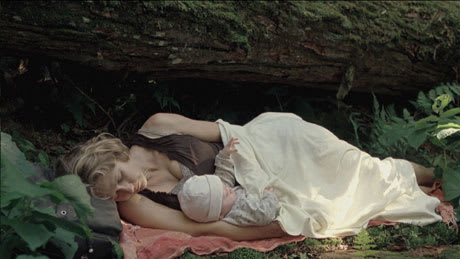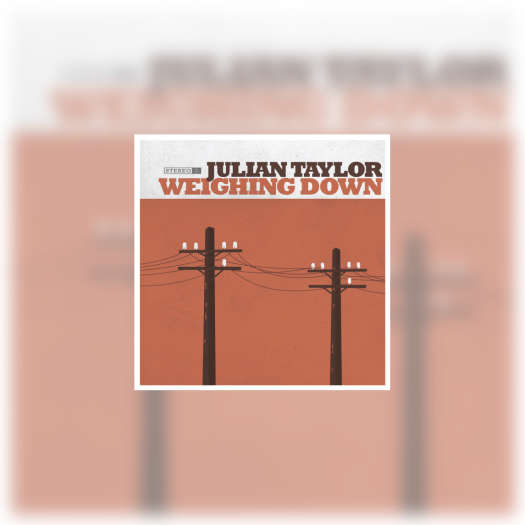The notion of domesticity as prison is nothing particularly new in the world of cinema. Even before more overt examples, such as the second wave feminist revolution of the '60s, filmmakers and artists have been examining the after-effects of family for the sake of "fitting in" but rarely is the sheer maddening anxiety of mundanity translated effectively to celluloid. This is where Lost Song succeeds, as very little actually happens in the film but there is always a sense of unease and impending doom.
The film, which won Best Canadian Feature at the 2008 Toronto International Film Festival, follows Elisabeth (Suzie Leblanc) and Pierre (Patrick Goyette), a married couple with a new infant, as they travel to their summer abode in Quebec's cottage country, which is conveniently located next to Pierre's mother. Settling into their new digs, Elisabeth struggles to breastfeed her baby, whose constant crying is constantly audible, while her husband travels into the city daily for work.
Initially slight, Elisabeth's distress and gradual breakdown manifest themselves through minor events and an altercation with a stranger, eventually leading to a shocking, but expected and foreshadowed, finale.
While many may find the deliberate tone of Lost Song frustrating, as most of the film revolves around quiet extended scenes of swimming, breast-feeding or walking, others will appreciate its psychology and build-up. Even when everyone around Elisabeth seems unable to understand her plight, an invested audience is able to do so without unnecessary explanations or exposition, which speaks to the observant approach that director Rodrigue Jean has taken.
This is one tragic and consistently unsettling adult film that may cater more to the art house crowd than the mainstream, but that art house crowd should be thoroughly impressed, as this is one to check out. v
(Mongrel Media)The film, which won Best Canadian Feature at the 2008 Toronto International Film Festival, follows Elisabeth (Suzie Leblanc) and Pierre (Patrick Goyette), a married couple with a new infant, as they travel to their summer abode in Quebec's cottage country, which is conveniently located next to Pierre's mother. Settling into their new digs, Elisabeth struggles to breastfeed her baby, whose constant crying is constantly audible, while her husband travels into the city daily for work.
Initially slight, Elisabeth's distress and gradual breakdown manifest themselves through minor events and an altercation with a stranger, eventually leading to a shocking, but expected and foreshadowed, finale.
While many may find the deliberate tone of Lost Song frustrating, as most of the film revolves around quiet extended scenes of swimming, breast-feeding or walking, others will appreciate its psychology and build-up. Even when everyone around Elisabeth seems unable to understand her plight, an invested audience is able to do so without unnecessary explanations or exposition, which speaks to the observant approach that director Rodrigue Jean has taken.
This is one tragic and consistently unsettling adult film that may cater more to the art house crowd than the mainstream, but that art house crowd should be thoroughly impressed, as this is one to check out. v




